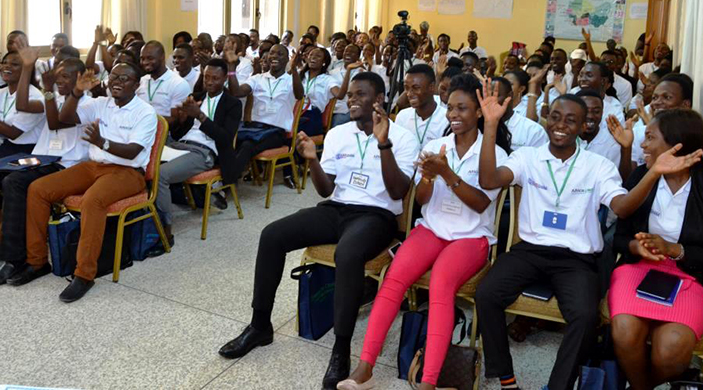Africa—Africa Lead II
Client: U.S. Agency for International Development
Duration: 2013-2019
Region: Sub-Saharan Africa
Country: Regional
Solutions: Economic Growth
In 2009, the U.S. Government’s Feed the Future initiative was born of the belief that global hunger is solvable; that initiative helped support and advance African-led agricultural transformation through Africa Lead II.
Following on the original Africa Lead project, Africa Lead II built the capacity of Africa’s agriculture hierarchy to develop, manage, and lead programs. Our work with these professionals, institutions, and emerging stars was guided by the African Union’s Comprehensive Africa Agriculture Development Program (CAADP).
From 2010 to 2013, Africa Lead trained more than 1,800 food security leaders, conducted instructive assessments of many of the continent’s agriculture institutions, and curated hundreds of short courses from 192 colleges and institutions into a single database, among other achievements. Africa Lead II worked with individual countries, regions, and many of these same “Champions for Change” to develop long-term, African-led activities to increase agricultural productivity and food security.
By 2019, the project reached 26,000 emerging African agriculture leaders and supported 6,000 institutions from 42 countries. Click here for more results.

Closing ceremony for Champions for Change short course for university students in Accra, Ghana, January 2017.
Sample Activities
- Strengthen the institutional architecture of parliaments, ministries, agencies, and departments so they can better plan, manage, and lead agricultural initiatives.
- Scale up the diversity and training of senior managers, legislators, and women who are needed to champion agriculture and food security policies and projects.
- Incorporate into training and technical assistance a wider range of nonstate actors, including trade and farmer organizations, private sector businesses and associations, young people, and women.
Select Results
- Developed a roster of 30 qualified instructors of Champions for Change (C4C) leadership training in Tanzania, who have provided training sessions to more than 540 policymakers and stakeholders, including members of Parliament, local government officials, and leaders of community organizations.
- Partnered with Media for Development International in Tanzania to conduct a media campaign to promote agricultural entrepreneurship among women and youth, producing two feature-length dramatic films and a 52-episode radio drama, Kumekucha, with weekly broadcasts.
- Provided leadership and ICT training to 35 new agricultural extension agents in Kenya, enabling them to reach up to 800 farmers daily through social media and messaging applications, compared to previously conducting only four or five onsite visits in a day.
- Facilitated 742 trainings, conferences, meetings, and workshops.
- Supported leaders of Ghanaian civil society groups in successfully advocating for key policy updates in the Ghana Livestock Development Policy and Strategy Document to address issues of poor animal nutrition, a lack of livestock disease control, and competition from imported animal produce.
- Developed a suite of customizable tools, known as the Institutional Architecture Assessment, Prioritization, and Planning (IA-APP) toolkit, to facilitate a multi-stakeholder process using participatory self-assessment and collaborative decision-making to design a plan to strengthen IA.
- Produced, with partners, a six-month executive leadership course on Africa food security.
- Supported 2,600 women from public sector and government institutions and 6,450 women from nonstate actor organizations; 36 percent of individuals Africa Lead supported between 2014 and 2019 were women.
RELATED CONTENT:
Regional—AL-INVEST Next Programme Management Unit and EU-LAC Trade and Investment
The AL-INVEST Next Programme and its EU-LAC Trade and Investment Component promote a more dynamic and sustainable economic relationship between the EU and the countries of Latin America and the Caribbean.
Read More